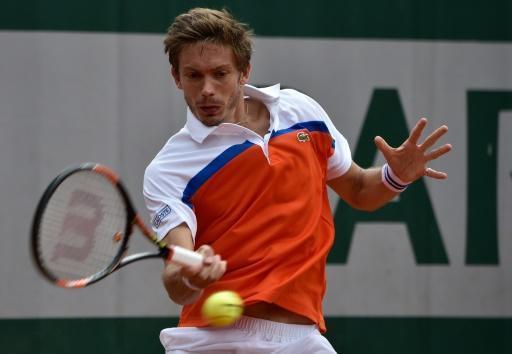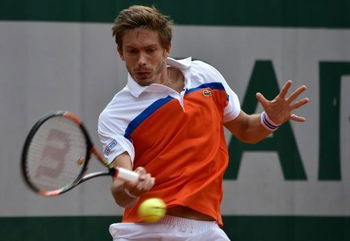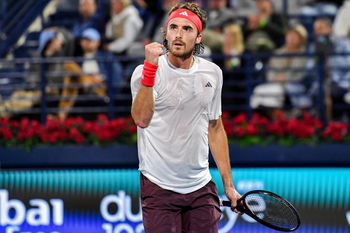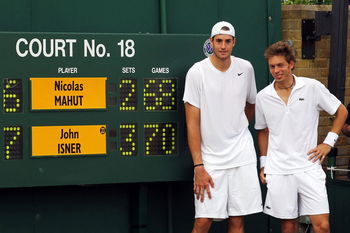"I was convinced he would never hold on and that I was going to win," Mahut reflects on his legendary Wimbledon match against Isner

On this June 25, there are only a few days left to wait before Wimbledon begins. And inevitably, when the London Grand Slam is mentioned, one match in particular keeps coming back to Nicolas Mahut’s mind.
The 43-year-old Frenchman, who will retire at the end of the season, indeed played the longest match in tennis history during the first round of the 2010 edition, when he lost to John Isner (4-6, 6-3, 7-6, 6-7, 70-68 in 11 hours and 5 minutes over three days).
Now a consultant for Eurosport, the Angers native revisited this defeat in detail 15 years later, admitting it has become easier over time to talk about a match that remained a trauma for years.
"Today, I can say it remains a good memory and that it changed the course of my career. There’s a real disconnect between what people felt during those three days and what I felt at the end of the match. There was truly this overwhelming sense of defeat.
It took me some time to realize that, in the end, it was more than just a loser and a winner. I have no problem talking about it now, telling myself that my career is ending and that people mention this match as if it might be the only thing that will remain from my career.
But I know I’ve won singles titles and Grand Slams in doubles. I’m no longer solely associated with a match I lost, and that, for me, was really something important.
Wimbledon is my favorite tournament. I wasn’t strong enough to leave my mark on it by winning. Through this match, John (Isner) and I had the chance to leave our names, even if it’s just a small part of the tournament’s history.
I’m part of it, and I’m very proud of that. John and I have never talked about this match together. I think he doesn’t out of modesty, but it’ll happen one day. Of course, I have questions!
I was convinced he would never hold on and that I was going to win. He’s 6’10", he could barely move. What was his deeper motivation? I know mine, I know what pushed me to go beyond my limits, but I’d be interested to know what drove him, because it’s more than just winning a tennis match. I’d like to know how he handled those moments when he was physically struggling.
If I held on for so long, it’s because I was convinced I was going to win. I had told my team. For me, this match was also for them. I was aware that a match like this, I’d never experience again—it was a unique moment.
When it ended, I had to accept it. I hadn’t succeeded; I felt like I’d disappointed everyone. I have no memory of the match point or even walking to the locker room.
There was a terrible hour and a half where I cried in the locker room. I kept asking my coach, ‘What did I do wrong in that last game?’ because in the moment, I couldn’t even remember.
What’s funny is that today, 15 years later, I’m obviously associated with that match more than being world No. 1 in doubles or winning Grand Slams, which is normal.
But what makes me happy is that people still ask me if I won that match. Sometimes, I joke and say, ‘Yes, yes, I won it.’ This year, I’ll go back with my son, and it’ll be my chance to show him, maybe even tell him part of the story," Mahut concluded for Eurosport.









 Wimbledon
Wimbledon 






 As a laboratory for tomorrow’s tennis, does the Next Gen Masters have a future?
As a laboratory for tomorrow’s tennis, does the Next Gen Masters have a future?  Tennis: the little-known truths about the offseason, between rest, stress and physical survival
Tennis: the little-known truths about the offseason, between rest, stress and physical survival  What if tennis lost its soul? The case of robotized officiating, between tradition and a dehumanized modernity
What if tennis lost its soul? The case of robotized officiating, between tradition and a dehumanized modernity  Features - Saudi Arabia, injuries, war, and business: the fascinating underbelly of tennis revealed by TennisTemple
Features - Saudi Arabia, injuries, war, and business: the fascinating underbelly of tennis revealed by TennisTemple 
